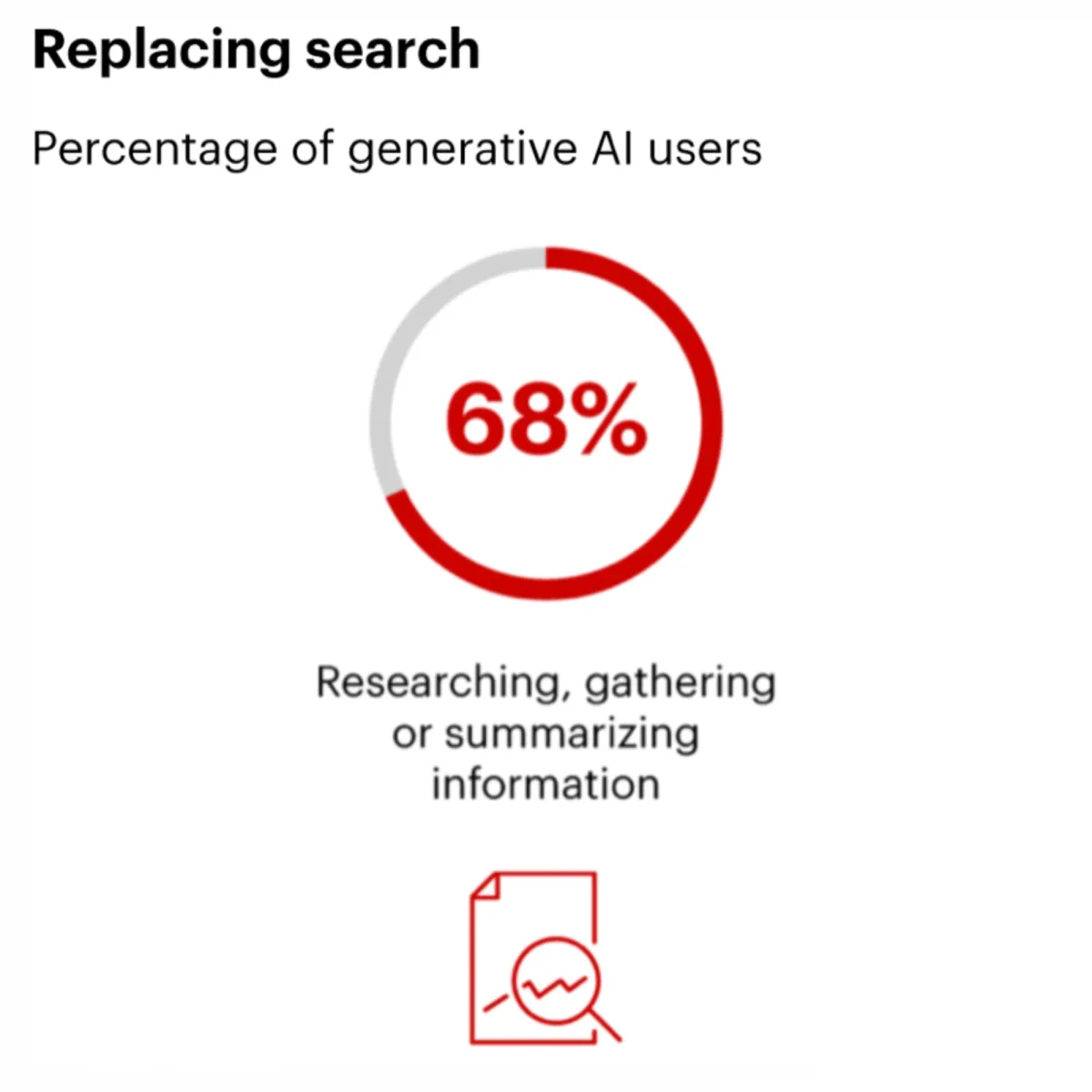

According to Bain's December 2024 survey, about 80% of consumers now rely on zero-click search results for at least 40% of their queries, marking a significant transformation in search behavior. The data reveals that organic web traffic has decreased by 15% to 25% as users increasingly find answers directly on search result pages without clicking through to destination sites.
The shift extends beyond traditional search engines. ChatGPT experienced a 44% traffic increase in November 2024, while Perplexity reached 15 million monthly users by late 2024. The rapid adoption of these platforms indicates a broader change in how users seek information online.
A comprehensive study by SparkToro, published in July 2024, examined over 1.6 million Google searches across the United States and European Union. The analysis found that only 374 clicks per 1,000 searches in the United States lead to external websites. In the European Union, the number drops further to 360 clicks per 1,000 searches.
Mobile searches demonstrate an even lower propensity for external clicks, according to SparkToro's research. The trend is attributed to limited screen space and the effectiveness of direct answer features on mobile devices.
The impact on non-branded searches has been particularly notable. According to Bain's analysis, these searches, where users seek information before committing to specific brands, historically served as crucial points for customer discovery and conversion. The research indicates that 68% of generative AI users employ the technology for research and information gathering, while 48% use it for current news and weather updates.
Technical changes in search behavior patterns reveal varying impacts across different types of queries. SparkToro's analysis discovered that specialized search verticals, including image, video, and news searches, maintain higher click-through rates compared to general web searches.
The shift affects different demographics similarly. Bain's research indicates that even among users expressing skepticism toward generative AI, approximately half report receiving sufficient answers directly on search result pages without clicking through to external sites.
Consumer behavior data shows distinct patterns in how users interact with AI-powered search tools. According to Bain's survey, 42% of users now rely on these platforms for shopping recommendations and decision support, indicating a broadening scope of use cases beyond simple information retrieval.
The transformation poses challenges for content discovery and distribution. SparkToro's analysis suggests that websites receiving fewer clicks from search results may face difficulties in content monetization and audience building, potentially affecting the broader digital information ecosystem.
Timeline of key developments
May 2024
Implementation of Google's new site reputation abuse spam policy
July 2024
SparkToro releases comprehensive study analyzing 1.6 million searches
November 2024
ChatGPT records 44% traffic increase
December 2024
Bain conducts consumer survey on zero-click search behavior
Late 2024
Perplexity achieves 15 million monthly active users
February 2025
Data indicates 60% of searches end without progression to destination sites

